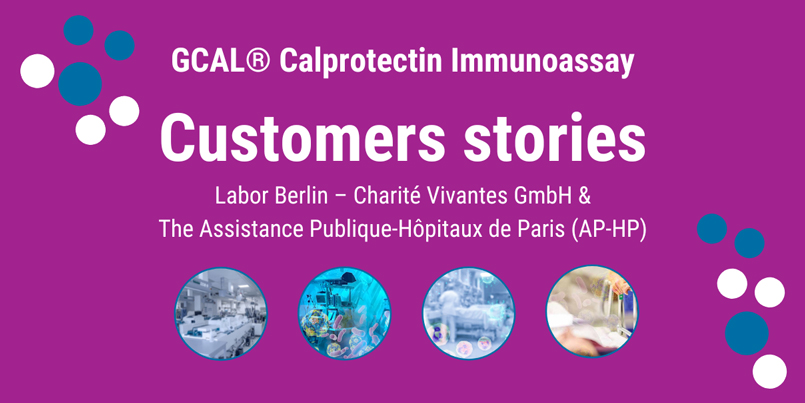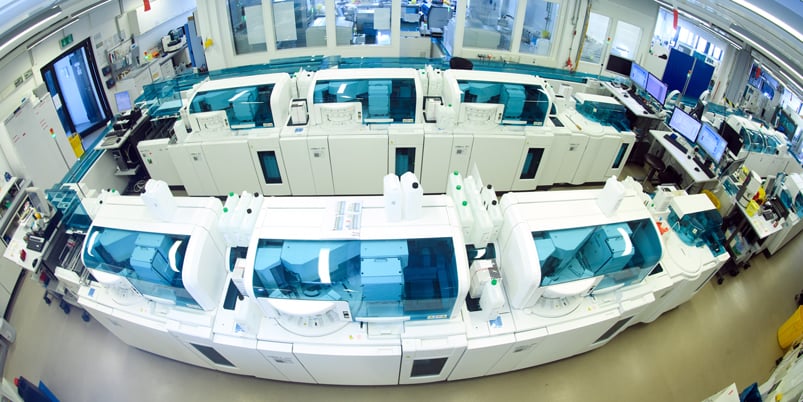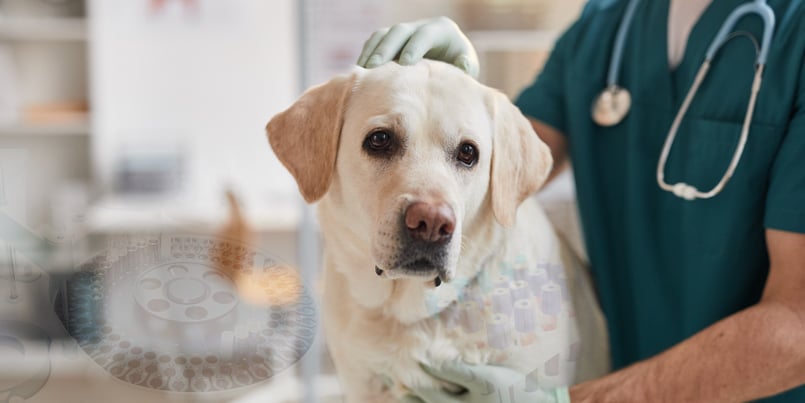
GCAL® success stories
The GCAL® Calprotectin assay measures plasma and serum calprotectin in the assessment of inflammation and severe infections. The assay is in routine use for various diagnostic fields at several hospitals and clinical chemistry laboratories across Europe. GCAL® i is used in the fields of intensive care, emergency medicine, neurology, paediatrics, hepato-gastroenterology, rheumatology, dermatology and COVID-19 prognosis.
Two GCAL® routine users and why they chose GCAL®
- Labor Berlin, a joint venture of Charité, being one of Europe’s major university hospitals, and Vivantes, the largest municipal hospital group in Germany
- The Assistance Publique-Hôpitaux de Paris (APHP Centre), a world-renowned university hospital and a public health establishment in Greater Paris
Labor Berlin experienced an increasing demand for plasma and serum calprotectin testing, and therefore wanted to implement an automated solution for plasma and serum calprotectin. APHP was searching for additional biomarkers to complement routine biomarkers like CRP, IL-6 during the 1st COVID-19 wave, looking for a biomarker that would better stratify severity and prognosis1.
GCAL® Calprotectin customer stories
GCAL® - answering the demand for an automated plasma and serum calprotectin
Labor Berlin is Europe´s biggest hospital laboratory serving all locations of Charité and Vivantes in addition to 23 connected hospitals in Berlin. With the increased demand of plasma and serum calprotectin the immunology laboratory at Labor Berlin – Charité Vivantes GmbH moved from a manual calprotectin ELISA method to the Gentian GCAL® Immunoassay on a Cobas c501 system (Roche) in early 2022.
 ©Labor Berlin/Ausserhofer
©Labor Berlin/Ausserhofer
Labor Berlin – Charité Vivantes GmbH has a broad spectrum of use of calprotectin at their associated hospitals. The test is open to order for all their clinical departments, and requests span from multiple clinical areas, including neurology, paediatrics, rheumatology, dermatology and ICU. The lead medical doctor at Labor Berlin for the GCAL® implementation, Nadine Unterwalder, reports very positive feedback on assay performance and ease of use, as well as endorsement of clinicians reporting positive correlation of biomarker levels with the patients’ clinical status.
"At Labor Berlin, which is Europe`s biggest hospital laboratory, we are very pleased about the collaboration with Gentian. Before, while and after the application of their assay Gentian has been a very reliable, helpful partner and we would be pleased about future projects. Implementing their assay has helped us to minimise manual processing of samples, clinicians are very pleased now to get results within hours that can be helpful for the decision on therapies. Collaboration with Gentian has both optimised processes within our lab and improved our patients care notably.“
Nadine Unterwalder,
Lead Medical Doctor, Labor Berlin
GCAL® - from clinical studies to routine inflammation marker
The Assistance Publique-Hôpitaux de Paris (APHP Centre) is a world-renowned university hospital and a public health establishment in Greater Paris. They have 38 hospitals caring for more than 10 million patients each year.
Prior to COVID-19 few clinicians at APHP were aware of the novel plasma and serum calprotectin as a routine biomarker. The interest in calprotectin came with a need for new biomarkers during the 1st COVID-19 wave. APHP was looking for biomarkers to complement existing markers like CRP and IL-6 to better stratify disease severity. In 2020 the automated GCAL® Calprotectin Immunoassay were included in clinical studies, when APHP started to use the biomarker to better identify patients developing a severe form of COVID-19.
After seeing the strong association of calprotectin with COVID-19 severity and prognosis, the biomarker is now also perceived as a new informative biomarker of residual inflammation in autoimmune diseases and a valuable biomarker in clinical practice. Today the assay is in routine testing at APHP for different diagnostic fields, including demand from internal medicine, ICU, emergency, hepato-gastroenterology, rheumatology and dermatology departments. APHP reports that GCAL® is easy to implement and use in routine practice on their Cobas c501 system.
“Since we started performing GCAL® Calprotectin measurement on our fully automated analysers, the biomarker has become a new routine inflammation marker with strong informative value for all practitioners, in addition to other inflammatory biomarkers. Gentian’s GCAL® Calprotectin is a robust assay in ad equation with our laboratory quality requirements. Collaborating with Gentian in implementing the biomarker in our catalogue was easy and efficient. News fields of applications for calprotectin have raised in addition to the interest in ICU patients, such as for patients with vascularity, scleroderma and rheumatoid arthritis (RA).”
Dr. Camille Chenevier-Gobeaux,
APHP Centre – Université de Paris, France
Contact us for further information
Explore GCAL® in your laboratory - fill out the form or send an email to marketing@gentian.com for more information about the product and prices.



-1.jpg)
.png)